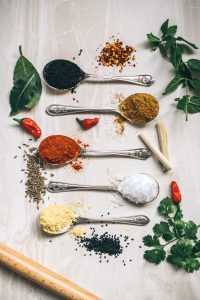 Whether you’re stocking your shelves ahead or simply shopping for the week, there are healthy staples you should always have on hand. There are a lot of reasons you might not make it to the grocery store, and reasons you may need more food than usual, so having a backup stock of healthy food can be important.
Whether you’re stocking your shelves ahead or simply shopping for the week, there are healthy staples you should always have on hand. There are a lot of reasons you might not make it to the grocery store, and reasons you may need more food than usual, so having a backup stock of healthy food can be important.
Fresh, canned or frozen fruits and vegetables are important to keep in stock.
When it’s in season, fresh produce is often on sale or relatively inexpensive. At that time, the same was true of frozen fruits and vegetables. Either buying fresh produce and freezing it yourself or the frozen option, which may even be fresher than the fresh option, studies show they have the same nutritional value. The frozen may actually be healthier, since it’s picked at peak ripeness and immediately frozen. Canned fruit and vegetables don’t lag that far behind when it comes to nutrition and have a much longer shelf life.
Have s source of protein ready when you need it.
Whether you opt to stock up on dried or canned beans, lentils or other source of plant protein, they have a long shelf life and can be a convenient way to add protein to a meal. Test recipes by having a meatless Monday, which can also cut the grocery bill, and see which ones your family loves. Not only will you have a stock of one of the macronutrients, but you’ll also have the recipes ready that your family enjoys if you can’t get to the grocery or you need extra food for a group of people.
Keep eggs in your refrigerator and replenish your stock weekly.
You don’t have to save eggs for breakfast, you can eat them boiled and chopped in a salad for lunch or part of a healthy stir-fry. They’re an inexpensive source of protein that are jam-packed with nutrients. Even better, eggs can be refrigerated for up to five weeks. You can even freeze eggs for up to a year, but you have to separate the yolks from the whites or whisk them, but they keep for up to a year.
- If you choose the option of stocking your cupboard or freezer with canned or frozen vegetables, always read the label to make sure they don’t have any additives, including added sugar or salt.
- Keep nuts and seeds on hand to add to salads or use as snacks. You can even freeze them to extend the shelf life. Pecans can be frozen for up to two years.
- Spices and herbs are another must for the kitchen. Cinnamon, ginger, turmeric and other spices offer additional benefits, like reducing inflammation, plus improve the flavor of the food.
- It’s always a good option to have frozen meats, fish and poultry on hand. Don’t forget to mark the date you stored it or the date its shelf life ends and rotate so the oldest in the front.
For more information, contact us today at Wellness On A Dime Coaching
